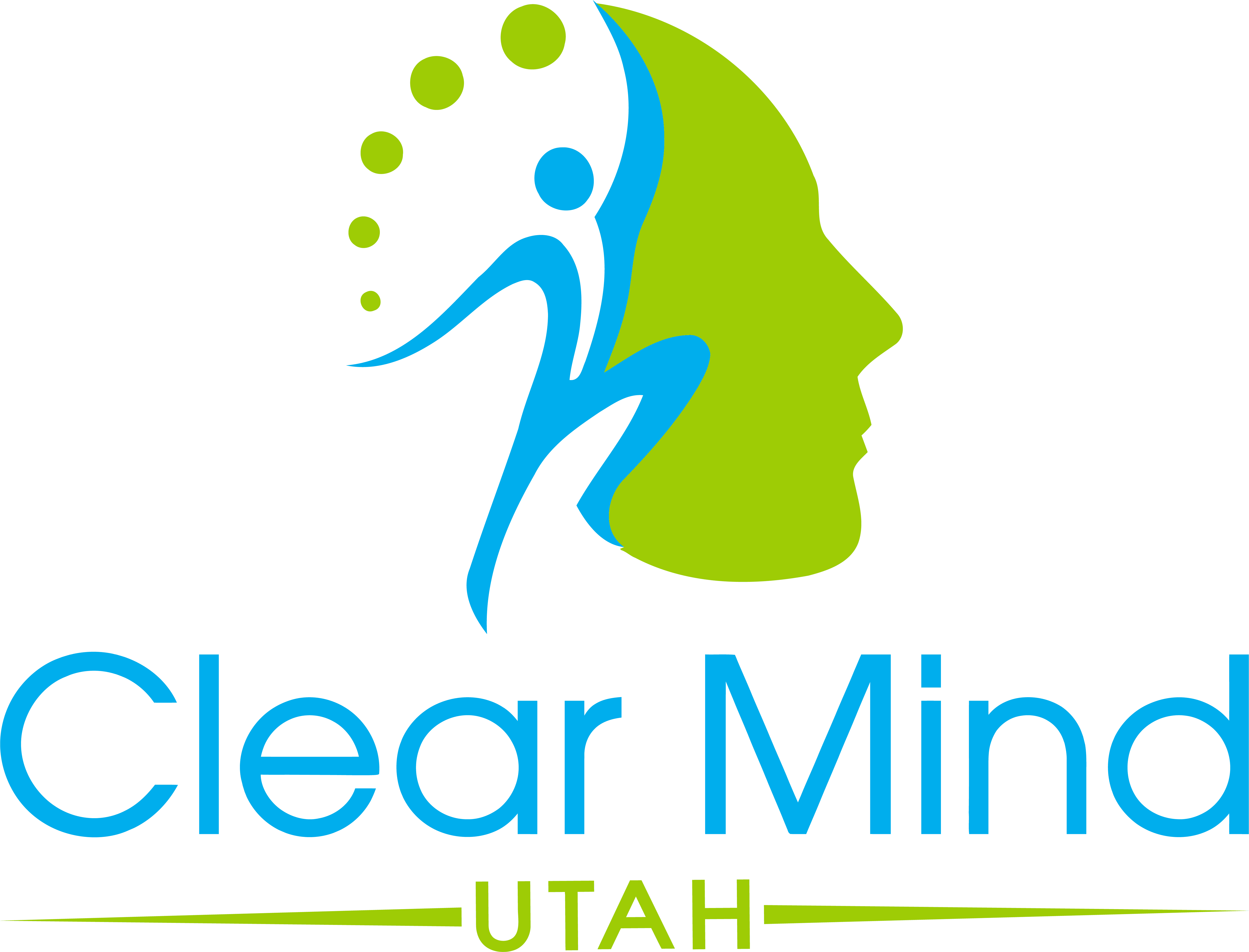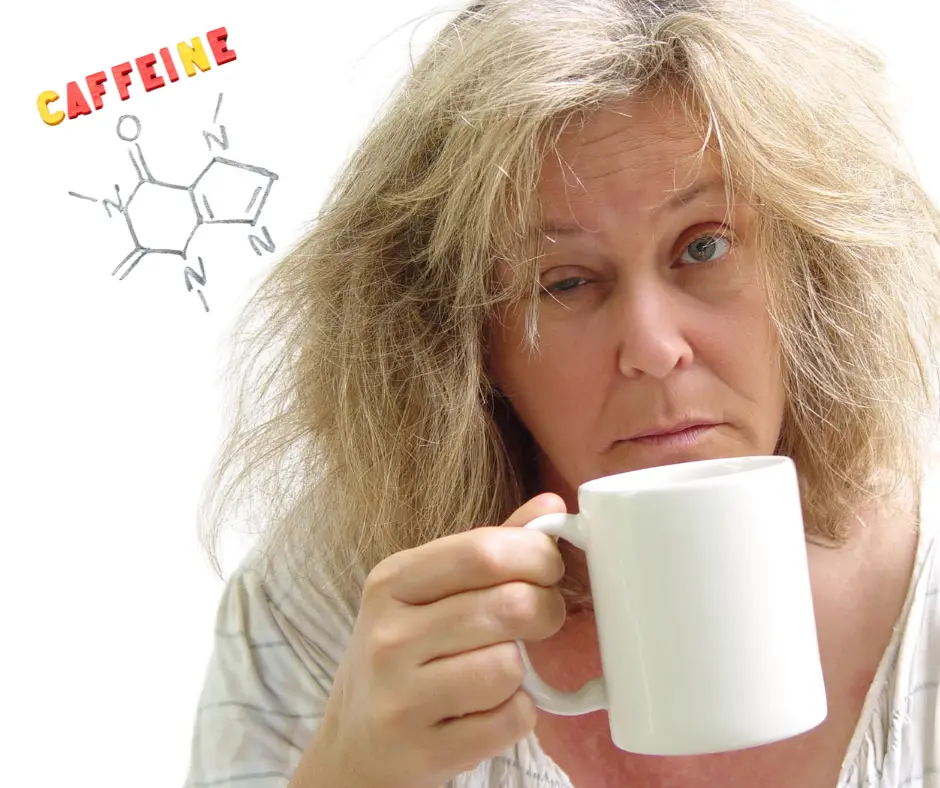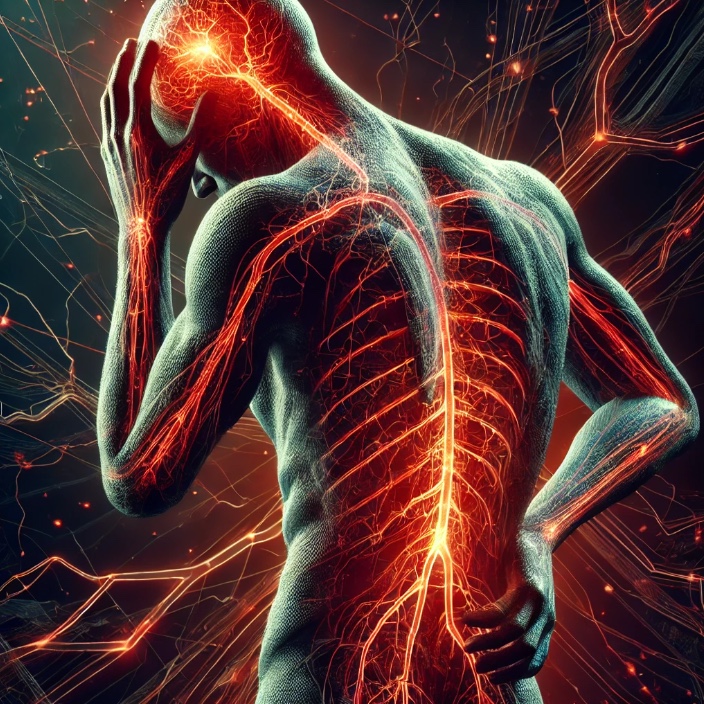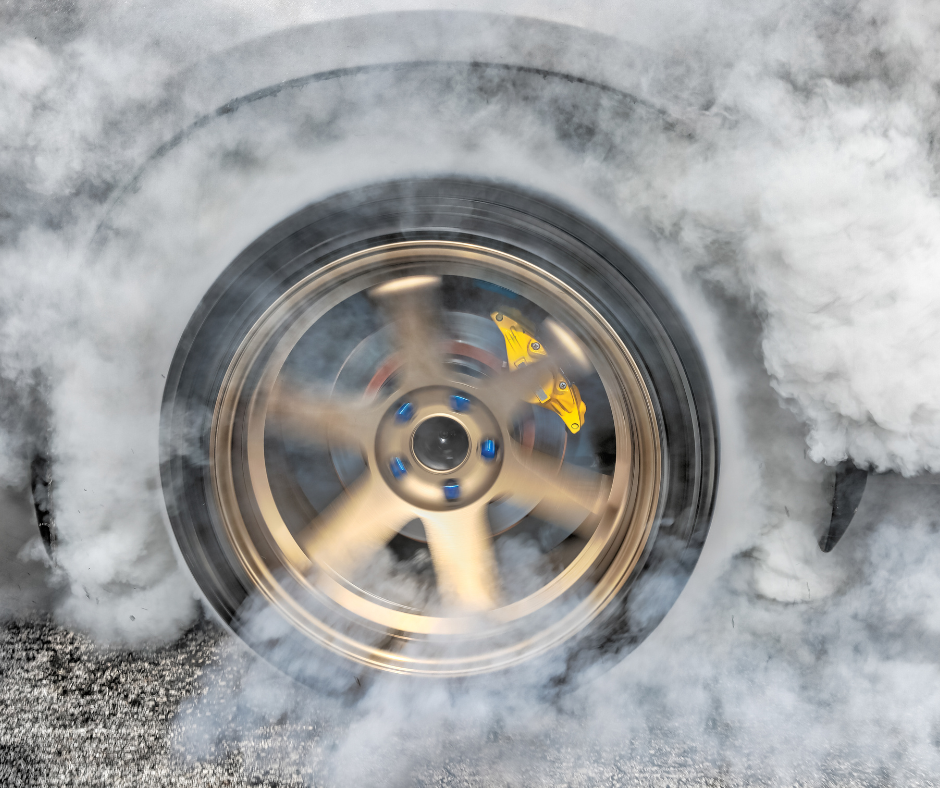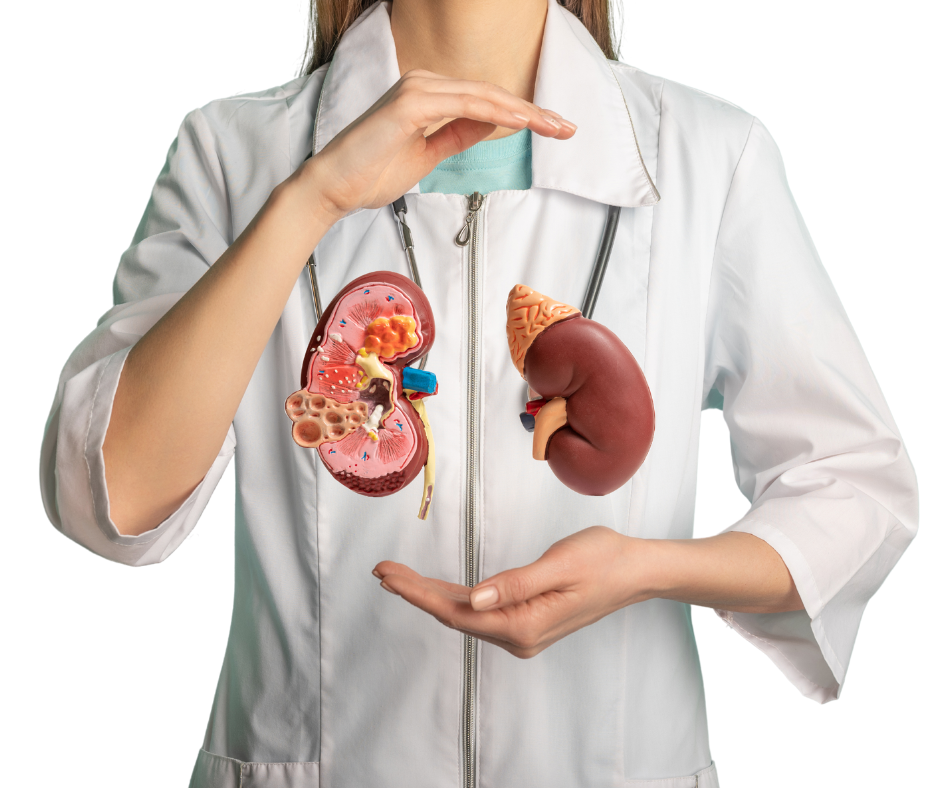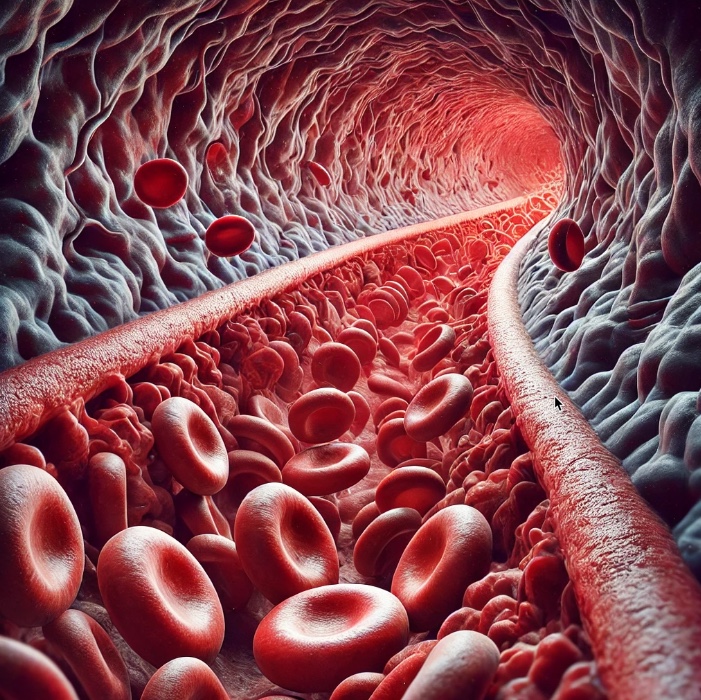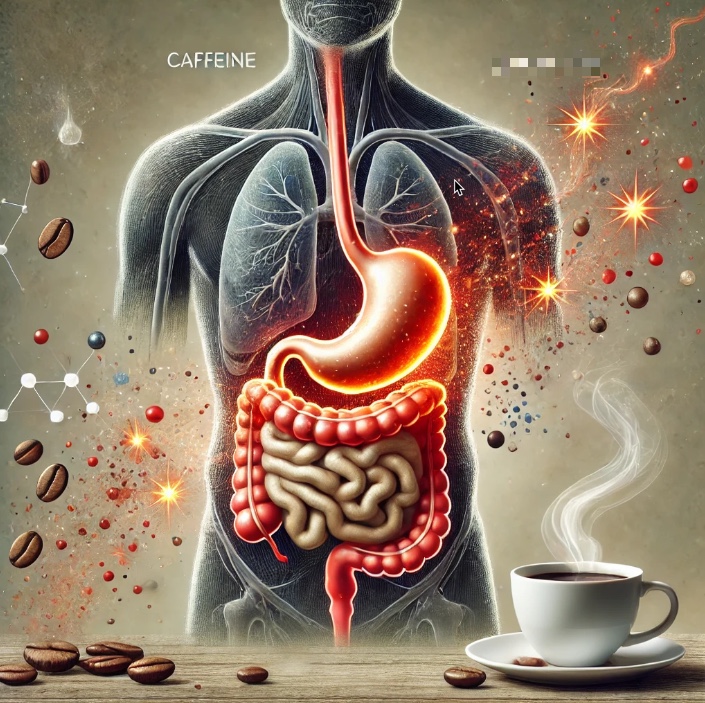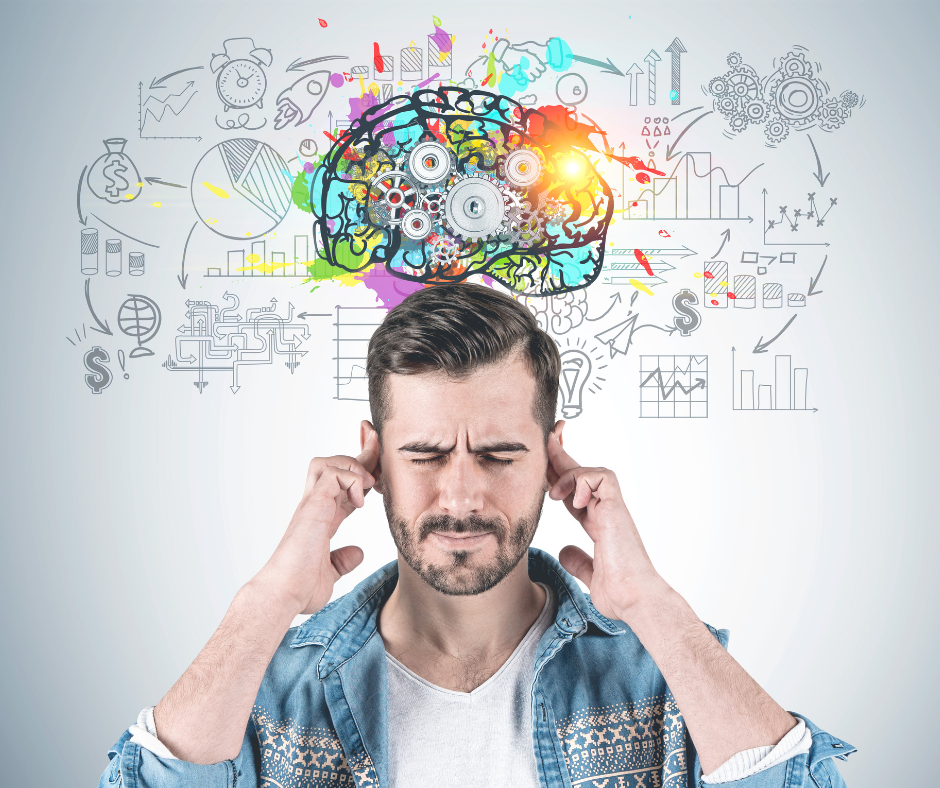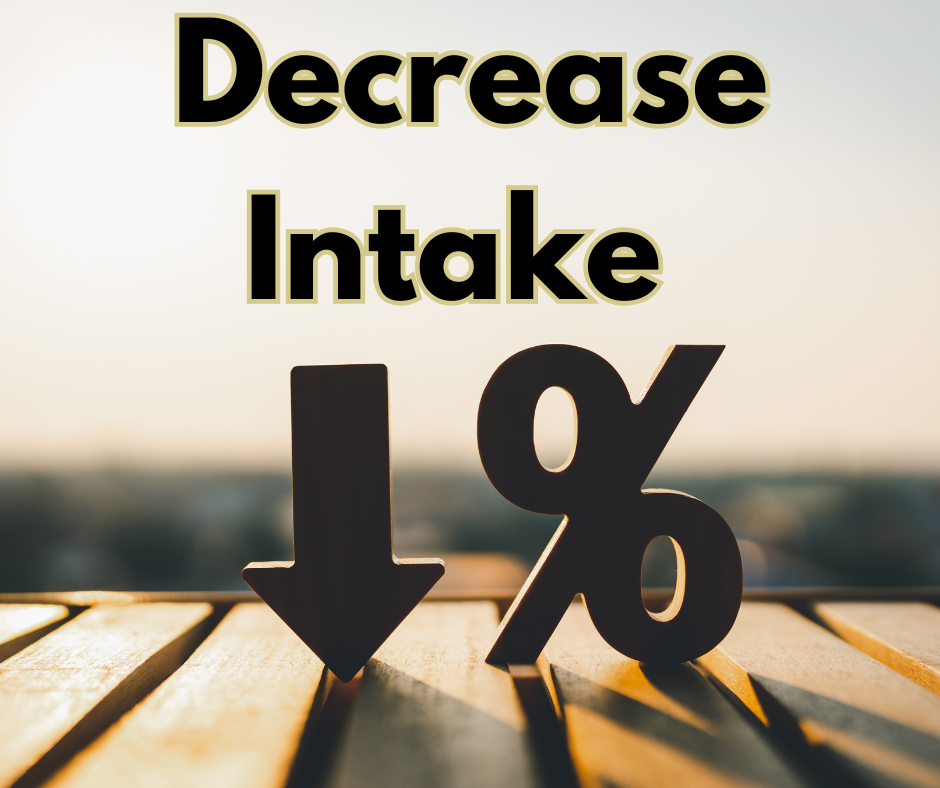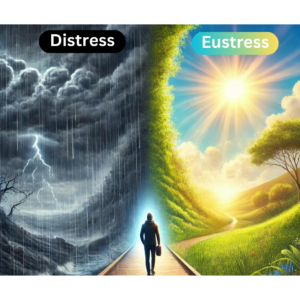The Caffeine Chaos
Ah, caffeine, our morning elixir! It energizes us like a superhero, yet caution is warranted — what caffeine does to your brain can be more disruptive than you imagine. Consider your nervous system as a dance floor; excess caffeine can turn a graceful waltz into a frenzied jitterbug!
Imagine your autonomic nervous system, adrenal glands, and kidneys all groaning for a break from this caffeine fest. Research in the American Journal of Clinical Nutrition reveals that caffeine isn’t all sunshine and rainbows. It’s like inviting stress and anxiety to your BBQ and wondering why there’s chaos (source: American Journal of Clinical Nutrition).
You might be surprised to learn that your cherished caffeine fix could be contributing to feelings of anxiety and panic, making your heart race faster than a squirrel on espresso.
On this journey, we’ll explore the lively effects of caffeine in coffee and canned drinks. While caffeine boosts alertness, it can also agitate your nerves. Consider whether your extra cup of coffee or can of Monster is aiding or hindering your health. As you hold your coffee mug or soda can, pause and question: is caffeine the charming friend it seems, or a sneaky saboteur?
A study by the American Heart Association puts a serious twist on the tale, cautioning that too much caffeine can tap dance all over your cardiovascular health, potentially turning up the tempo on your heart rate and blood pressure (Source: American Heart Association).
Understanding Caffeine and Its Popularity
The Prevalence of Caffeine
Caffeine is like the world’s favorite pop star—celebrated everywhere and impossible to miss! It’s naturally grooving in coffee beans, tea leaves, kola nuts, and cocoa beans, and now it’s jamming in the energy drink scene too, making waves worldwide. This caffeine craze isn’t just riding on its energetic beats; it’s driven by catchy marketing jingles and a lack of awareness about what caffeine does to your brain behind the scenes.
In a no-holds-barred performance review by the Journal of Nutrition, caffeine’s fame is linked to flashy marketing gigs and the public’s ignorance of what caffeine does to your brain and its potential side effects (Source: Journal of Nutrition). Understanding its mega-presence is step one in tuning into its true impact on our health playlist.
Caffeine sneaks into all sorts of products—sodas, meds, you name it! It’s like finding glitter in odd places long after the party’s over. Sure, your morning coffee or afternoon fizzy drink might seem no biggie, but their combined forces could be more than just ear candy. Understanding caffeine’s widespread popularity requires grasping its impact on your brain, which is crucial for ensuring it doesn’t overextend its stay in your health regimen.
Why We Love Our Caffeine Fix
Caffeine’s charm lies in its ability to brighten your mood and sharpen your focus, making it your trusty sidekick through long days and late-night study marathons. But let’s dive into the science of why this little helper keeps us buzzing.
Brain Boosting Magic: By blocking adenosine receptors, caffeine prevents drowsiness, keeping you lively and alert. It’s like a mini superhero in your coffee cup!
Routine Comfort: Brewing your morning java isn’t just a caffeine fix; it’s a comforting ritual. Whether you’re chit-chatting at a cafe or sealing business deals over coffee, caffeine is your reliable partner in social scenarios.
Caffeine energizes and relaxes, making social activities enjoyable. But be cautious, as dependency can develop easily.
Sure, sipping that latte can make you feel like you’re conquering the world, but it’s easy to get hooked. Staying mindful of caffeine’s pitfalls is key to avoiding health hiccups. Here’s how:
Understand the Drawbacks: Just like a friend who’s great in small doses, caffeine can cause jitters. Know the signs!
Strike a Balance: It’s all about moderation. Enjoy your caffeine buzz without letting your health take the back seat.
Explore Alternatives: Curious about a new way to boost brain power? Consider trying natural herbs and fruits like ginkgo biloba, turmeric, and berries, which are superstars in promoting wellness.
Remember, understanding the ups and downs of caffeine is your first step to a healthy relationship with it.
Caffeine as a Social Ritual
Caffeine hasn’t just stayed in its lane as a simple pick-me-up; it’s zoomed into the social lane too! Sipping on coffee or tea? Well, that’s like shaking hands in many cultures. From heartwarming coffee chats with pals to productive meetings in lively cafés, these caffeine concoctions have become staples in the social scene.
Connect Over Coffee: Whether you’re bonding with a buddy or chatting for business, coffee is often the bridge between sides.
Global Rituals: The shared routine of tea or coffee bonds people worldwide, blending tradition with a modern twist.
Drinking a cup of coffee or soda is more than just getting energy; it’s like a warm greeting that makes you feel connected. Coffee shops have become bustling social places, perfect for chatting, working, or enjoying the lively vibe. This social side of drinking coffee or soda pulls us in, not just for the caffeine, but for the friendship it brings. Still, while enjoying this habit, be careful not to overdo it and end up as jittery as a squirrel on sugar!
Community Builder: Crafting connections over coffee or tea.
Social Relaxation: Enjoy the welcoming space of local cafés.
Mindful Consumption: Relish the experience without overdoing it.
By keeping balance in check, you can enjoy both the perks of caffeine and the joys of community, all while staying grounded in mental wellness.
How Caffeine Affects the Nervous System
What Caffeine Does to Your Brain and Its Autonomic Nervous System Impact
Caffeine can easily get your autonomic nervous system (ANS) revved up, showing exactly what caffeine does to your brain. It affects things like heart rate and digestion, which are usually unnoticed functions of your body. It’s like giving your ANS a big jolt of espresso.
Here’s the deal: caffeine cranks up the sympathetic nervous system, hitting the “fight or flight” button to boost heart rate, blood pressure, and brain activity all at once. It’s like a quick superstar moment that can, with regular consumption, stress you out faster than a drama queen.
Quick Energy Boost: Feel awake and alert, like a superhero out to save the day.
Stress and Anxiety Buildup: Over time, that superhero turns into a frazzled sidekick.
If you’re attempting to manage caffeine’s crazy chaos, consider incorporating mindfulness techniques like meditation or deep-breathing exercises to guide you to a calmer and more balanced approach.
Regular caffeine use can make your body get used to it, meaning you might need more to feel the same buzz, which could make anxiety worse.
When caffeine triggers an adrenaline surge, it can make you feel like you’re channeling your inner squirrel—jittery and nervous! For folks with anxiety disorders, this can be a real challenge.
Understanding how caffeine affects your brain and ANS helps set limits and reduce chaos. Here’s how to manage it:
Moderated Consumption: Take the power back by cutting down to a level that keeps you feeling good, not spun out.
Personal Tolerance Awareness: Get to know how much caffeine your unique system can handle without inviting the jitters.
By calming down overstimulation, you’ll cultivate a balanced vibe and enhance your mental wellness. Finding harmony and calm is key to mental wellness.
Long-Term Effects on Adrenal Glands
Caffeine’s relationship with the adrenal glands is a tale of stimulation and stress. These small glands, perched atop the kidneys, produce hormones like adrenaline and cortisol that help the body respond to stress.
Regularly drinking caffeine makes your adrenal glands release hormones like adrenaline and cortisol more often, leading to constant alertness and stress.
Over time, this can lead to adrenal fatigue, where the glands struggle to keep pace with the constant demand for stress hormones.
This state can result in:
Feelings of exhaustion
Irritability
Difficulty in managing stress
Moreover, heightened cortisol levels due to caffeine can:
Disrupt sleep patterns
Further compound fatigue and stress
For individuals who rely heavily on caffeine, it’s important to:
Monitor consumption
Be mindful of the body’s signals
Balancing caffeine intake with adequate rest and stress management techniques can help mitigate these long-term effects on the adrenal glands.
Caffeine’s Role in Anxiety and Panic
Caffeine might be your early morning cheerleader, but it can also be that friend who never stops talking, especially if you’re prone to anxiety. Here’s the scoop:
Caffeine gets the central nervous system fired up, like tapping your foot to an endless beat, releasing stress hormones like cortisol and adrenaline.
These can turn whispers of anxiety into a full brass band, causing jitters, restlessness, and even panic attacks for some folks.
Too much caffeine can make things worse, trapping you in an anxiety loop that’s harder to break than a country line dance.
People with anxiety disorders might discover caffeine sends their zen packing, making that calm state feel like a distant island.
Understanding how caffeine increases anxiety is important. Keep an eye on how much you consume, especially before stressful days or when relaxing at night. If you struggle with anxiety, reducing caffeine or replacing it with calming alternatives can stabilize your mood.
Physical Risks of Regular Caffeine Use
Stress on the Kidneys
Did you know caffeine can turn your kidneys into hardworking little superheroes, pumping out urine like there’s no tomorrow? But let’s keep them from wearing capes every day. Here’s why:
While moderate caffeine is mostly harmless, too much can lead to dehydration—your body’s way of saying you need a refreshment break! This makes the kidneys juggle to keep your hydration in check.
Excessive caffeine over time might cause kidney stones, the little rocks no one wants as a companion. They love hanging out when things dry up and minerals get all clingy.
Plus, caffeine can mess with calcium, potentially putting both your bones and kidneys on a rollercoaster ride.
For those with kidney issues, less caffeine means less drama. Monitoring intake is key to keeping things calm and collected down there.
Quick tip for jitter-free kidneys: Drink up on water and balance your diet. Understanding caffeine’s effects keeps your kidneys happy and your health game strong.
Cardiovascular Health Concerns
Caffeine might be like your heart’s favorite DJ, playing upbeat tunes with every sip! But here’s the thing: too much caffeine can increase adrenaline, causing your heart to beat faster and raising your blood pressure. If you have a heart condition or high blood pressure, it’s wise to limit your caffeine intake. An occasional treat is fine, but drinking it regularly could lead to ongoing heart issues you might want to avoid.
Heart Health Alert: High caffeine can increase heart rate and blood pressure.
Risk Factors: Particularly impactful for those with hypertension or heart disease.
Smart Sips: Enjoy in moderation to avoid long-term pressure spikes.
The increase in blood pressure can stress the heart and arteries, potentially leading to adverse cardiovascular events over time.
Caffeine can cause palpitations or arrhythmias, especially with high consumption. If your heart’s a bit touchy, keeping an eye on caffeine intake is wise. Balancing this with exercise and a healthy diet is key. Being aware of caffeine’s heart impact helps you make savvy choices and keep your ticker happy.
Digestive System Disruptions
Caffeine can be a bit of a party crasher for your digestive system, often causing unexpected disruptions. Let’s break it down with a bit of humor and insight:
Like an uninvited guest, caffeine revs up gastric acid production, which can lead to or worsen conditions like acid reflux or GERD, leaving your esophagus wishing for a quieter time.
If you’re someone who battles heartburn, caffeine might just be fanning the flames instead of calming them.
Caffeine also hastens the digestive journey, which could result in diarrhea or loose stools, especially for those with sensitive tummies.
With its diuretic charm, caffeine can lead to dehydration, and your digestive tract might throw in the towel, causing constipation.
If your digestive system feels like it’s on a bumpy caffeine ride, slowing down might help. Choosing caffeine-free or low-caffeine options lets you enjoy your usual habits without any fuss. These changes can keep your digestion calm and balanced.
Mental Health Implications of Caffeine
Anxiety and Mood Swings
Hey there, caffeine enthusiasts! Let’s chat about how our beloved bean juice can be a sneaky saboteur when it comes to mental health. Caffeine can be a bit of a mischief-maker, stirring up anxiety and swinging our moods like a pendulum at a clockmaker’s convention.
As a stimulant that kickstarts the central nervous system, caffeine unleashes stress hormones like cortisol and adrenaline, turning our calm into chaos.
For those of us prone to anxiety, caffeine can feel like inviting a tornado to a picnic—bringing along heightened nervousness, restlessness, and even impromptu panic parades.
The roller-coaster ride of energy ups and downs with caffeine can lead to mood swings, leaving us feeling irritable one moment and calm the next.
After a caffeine high, expect a plunge—left feeling more exhausted than a snoozing sloth.
Understanding these antics is key, especially for those managing mental health. Reducing or ditching caffeine can seriously elevate your mood game.
Sleep Disorders and Fatigue
Uh-oh! Turns out that caffeine can sneakily throw your sleep schedule into a tailspin, tipping you towards sleep disorders and causing that oh-so-fun fatigue.
Caffeine keeps you awake by blocking adenosine, a chemical that helps you feel sleepy.
Drinking caffeine later in the day can mess up your body’s natural sleep cycle, making it hard to fall asleep or stay asleep at night.
When caffeine disrupts your sleep, it’s like an unwanted guest disturbing your peace. Not getting enough rest can cause sleep deprivation, which easily turns into chronic fatigue and muddled thinking. Using caffeine to boost energy only traps you in a cycle that never ends—more caffeine, less sleep, and the cycle continues.
To get off this wild ride, here’s a game plan:
Monitor Your Intake: Keep an eye on caffeine, especially in the afternoon and evening. Think of it as curfew for your cup.
Create a Sleep Routine: Establish a consistent sleep schedule. Tucking yourself in at the same time each night is like a love letter to your circadian rhythm.
Explore Alternatives: Swap out coffee with herbal tea. Picture a soothing chamomile as your ticket to Snoozeville.
With these steps, you’re not just boosting your daily energy; you’re building a foundation for improved mental health and well-being.
Cognitive Performance Challenges
Think of caffeine as your brain’s sprinter—providing a quick energy boost, increasing alertness and focus, but sometimes leaving you feeling lightheaded once the rush is over. It gives your neurons a burst of energy, making you feel sharp and quick during fast reaction times. However, there’s a downside. While caffeine can make you feel smart for a brief moment, it can also cause your brain to struggle during tasks that require sustained attention and deeper thinking.
Fast Energy Fix: Caffeine gives you a swift kick of focus.
Reaction Time Pro: Feel sharper in quick-decision situations.
Potential Downside: Can lead to brain fatigue in tasks needing sustained attention.
Excessive consumption of caffeine can lead to overstimulation, inducing jitters and reducing the ability to concentrate effectively.
Think of caffeine as that chatty friend—exciting at first, but tires you out quickly. While it can help you focus for a bit, it might make your brain feel foggy during tasks that require careful thinking. This chaos can turn your performance into a series of mistakes.
Now, let’s talk about caffeine withdrawal symptoms—no one enjoys a headache or irritability to kick off their day. These symptoms can disrupt your mood and memory, making simple decisions feel difficult. Understanding how caffeine affects your brain is important for managing work, studies, and life without dropping the ball.
Knowing your own limits and making sure you’re drinking enough water and eating well can boost your brain power without needing caffeine.
This balance is crucial for maintaining sustained productivity and mental clarity.
Rethinking Your Caffeine Habits
Assessing Your Daily Intake
Taking stock of your daily caffeine intake is the first step towards understanding its impact on your health.
Identify Caffeine Sources: Include coffee, tea, energy drinks, and certain medications in your assessment of caffeine sources.
Consider Caffeine Variability: Be aware that caffeine content can vary widely across different beverages and brands.
Track Consumption: Monitor your intake over several days to get a clearer picture of your average caffeine consumption.
Compare to Guidelines: Review your findings against the recommended guidelines, which suggest no more than 400 milligrams of caffeine per day for most adults.
Recognize Individual Differences: Consider individual tolerance levels, as they can differ widely.
Evaluate Effects: Pay attention to how caffeine impacts your sleep patterns, anxiety levels, and overall well-being.
This self-assessment can guide you in making informed decisions about whether to reduce your intake or make other adjustments for better health outcomes.
Tips for Gradual Reduction
Reducing caffeine intake doesn’t have to be abrupt or uncomfortable.
Gradual Reduction: Decrease the number of caffeinated beverages each day. For example, cut back from three to two cups of coffee.
Dilute Beverages: Mix caffeinated drinks with decaffeinated versions to lower caffeine content.
Opt for Alternatives: Replace caffeinated beverages with herbal teas or water.
Monitor Snacks and Medications: Be mindful of high-caffeine snacks and medications, choosing alternatives when possible.
Identify Craving Times: Recognize when you typically crave caffeine and substitute with activities like a short walk for a midday energy boost.
Gradual Routine Adjustment: Allow your body to adapt slowly, reducing the likelihood of withdrawal symptoms.
This mindful approach can help you maintain energy levels while fostering healthier caffeine habits.
Embracing Alternatives to Caffeine
Exploring alternatives to caffeine can help maintain energy and focus without the accompanying jitters or crashes.
Herbal Teas: Chamomile or peppermint offer calming flavors without caffeine; ideal for relaxation and unwinding.
Ginseng or Ginger Tea: Provides natural stimulation for those needing an energy boost; promotes vitality and alertness.
Hydration: Increasing water intake maintains energy levels and enhances mental clarity; essential for overall health.
Smoothies or Juices: Made from fresh fruits and vegetables, they offer a refreshing alternative rich in vitamins and antioxidants; boosts alertness and nourishment.
Regular Physical Activity: Activities like a brisk walk or light stretching increase energy and decrease reliance on caffeine; supports physical and mental wellness.
Mindfulness Practices: Incorporating meditation or deep-breathing exercises enhances focus and reduces stress; fosters mental balance and tranquility.
By embracing these alternatives, you can transition away from caffeine while still maintaining productivity and well-being. This shift can promote a more balanced and sustainable lifestyle.
Consider Neurofeedback Therapy at Clear Mind Utah
If you’re considering tools beyond caffeine reduction to stimulate your feel-good chemicals, Clear Mind Utah is your trusted partner in mental wellness. Here’s why you should consider neurofeedback therapy:
Boosts Emotional Well-being: Neurofeedback has the ability to improve emotional balance by optimizing brainwave patterns. For a deeper understanding, check out the article titled Neurofeedback for Anxiety: A Revolutionary Solution for Lasting Relief.
Reduces Stress: Neurofeedback therapy aids in managing stress and anxiety without resorting to stimulants. For more insights, refer to these articles: How to Calm the Nervous System Naturally and Understanding Stress and Neurofeedback Techniques.
Improves Sleep: Many clients experience enhanced sleep quality through neurofeedback therapy, which complements the positive effects of reducing caffeine intake. For a deeper understanding of how neurofeedback aids sleep, refer to the article titled Microcurrent Neurofeedback for Sleep: Enhancing Restorative Rest.
Supports Overall Well-being: Promotes balanced mental states and enhances cognitive function.
Imagine waking up refreshed and ready, fully aware of what caffeine does to your brain—no coffee required. Let’s explore this transformative path together—your more vibrant life starts with us.
Start your journey to a healthier, balanced life with IASIS MCN at Clear Mind Utah. Our team is ready to help you understand what caffeine does to your brain and achieve mental wellness and a caffeine-free future. Schedule your appointment today.
Join those who are already experiencing the transformative power of neurofeedback—your mind and body will thank you! Don’t just take our word for it; see what others are saying by visiting our Reviews page.
